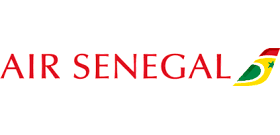 Air Sénégal's Fleet Crisis Exposes West African Aviation Vulnerabilities
Air Sénégal's Fleet Crisis Exposes West African Aviation Vulnerabilities
Senegal's national carrier faces mounting operational pressures as Air Sénégal continues operating its crucial Dakar-Paris route with a chartered Boeing 767-300ER from Portuguese carrier euroAtlantic Airways. This temporary arrangement highlights the fragility of fleet management strategies across West African aviation, where single aircraft groundings can severely disrupt entire network operations and revenue streams.
The delayed return of Air Sénégal's second Airbus A330neo, originally scheduled for late July 2025, has forced the airline into an expensive charter arrangement that reduces both capacity and operational flexibility. With only one A330neo currently operational from its two-aircraft widebody fleet, the carrier exemplifies the challenges facing African airlines attempting to maintain international connectivity with minimal aircraft redundancy.
The capacity implications prove significant for African travel professionals booking clients on this vital route. The chartered 767-300ER offers 218 seats in three-class configuration compared to 234 seats on the A330neo, representing a 6.8% reduction in available capacity. Over a full year of operations, this translates to approximately 5,840 fewer seats and an estimated revenue impact of nearly €2 million, assuming typical load factors and pricing structures.
Strategic Network Consolidation Reveals Market Pressures
Air Sénégal's current predicament stems from a broader strategic restructuring that saw the airline withdraw from seven international markets in 2024, including high-profile destinations like New York JFK, Milan Malpensa, and Barcelona. This dramatic network contraction leaves Paris as the carrier's sole European destination, intensifying the operational importance of maintaining reliable service on this route.
The consolidation strategy reflects broader challenges facing African flag carriers, where ambitious expansion plans often collide with financial realities and operational constraints. Air Sénégal's retreat from markets including Marseille, Lyon, Libreville, and Douala demonstrates how quickly international networks can contract when carriers face fleet limitations and financial pressures.
For African travel professionals, this network reduction creates both challenges and opportunities. While fewer direct routing options limit client choices, the concentrated focus on Paris may result in improved frequency and service quality once fleet issues resolve. The airline's commitment to maintaining this single European gateway suggests recognition of the route's strategic importance for connecting West Africa with European markets.
Maintenance Challenges Expose Industry Vulnerabilities
The extended grounding of Air Sénégal's second A330neo in Europe for maintenance work highlights systemic challenges facing African carriers operating modern widebody aircraft.
Technical issues requiring specialized European facilities create extended downtime periods that smaller fleets cannot easily absorb, forcing airlines into expensive charter arrangements or service suspensions.
These maintenance challenges extend beyond simple technical problems. Air Sénégal faces mounting unpaid bills to service providers, including Rolls-Royce, the engine manufacturer for its A330neo fleet. Such financial strains complicate maintenance scheduling and may contribute to extended aircraft groundings, creating a cycle where operational disruptions worsen financial pressures.
The situation reflects broader infrastructure gaps across African aviation, where limited local maintenance capabilities for modern aircraft types force carriers to rely on expensive European or Middle Eastern facilities. This dependency creates vulnerability to extended groundings and highlights the need for regional maintenance hub development to support Africa's growing modern fleet requirements.
Charter Solutions Provide Temporary Relief
The euroAtlantic Airways charter arrangement demonstrates how African carriers can maintain essential connectivity during fleet crises, albeit at significant cost. The Portuguese carrier's Boeing 767-300ER provides adequate range coverage for the 4,128-kilometer Dakar-Paris route, utilizing only 37.4% of the aircraft's maximum range capability.
However, charter operations present multiple disadvantages beyond reduced capacity. Airlines lose operational control over scheduling flexibility, cabin configuration, and service standards while paying premium rates for aircraft availability. The arrangement also creates passenger confusion regarding service standards and loyalty program benefits, potentially affecting long-term customer relationships.
For African travel professionals, charter operations require careful client communication regarding potential service variations and booking conditions. The temporary nature of such arrangements also creates uncertainty for forward bookings, complicating group travel planning and corporate account management.
Regional Competition Intensifies Pressure
Air Sénégal's operational challenges occur within an increasingly competitive West African aviation landscape, where European low-cost carriers are expanding Atlantic island operations and regional carriers compete for limited traffic flows. The airline's reduced network presence weakens its competitive position against carriers maintaining broader European connectivity.
The concentration on Paris as the sole European destination creates both vulnerability and opportunity. While the strategy reduces operational complexity and costs, it also limits passenger options and increases dependence on a single market's performance. Economic or political disruptions affecting France-Senegal relations could severely impact the airline's international operations.
Regional competitors with more diversified European networks may capture traffic that previously connected through Dakar, particularly for passengers requiring onward connections beyond Paris. This competitive pressure emphasizes the importance of resolving fleet issues quickly to prevent permanent market share erosion.
Financial Implications Extend Beyond Revenue Loss
The capacity reduction and charter costs create multiple financial pressures beyond immediate revenue impacts. Monthly passenger losses of approximately 360 travelers based on typical load factors reduce not only ticket revenue but also ancillary income from baggage, seat selection, and onboard services.
Charter arrangements typically involve significant upfront payments and minimum utilization guarantees, creating cash flow pressures for airlines already facing financial constraints. The inability to optimize capacity allocation across multiple routes further reduces operational efficiency and profit margins.
For African travel professionals, these financial pressures may translate into reduced commission structures, modified payment terms, or service level adjustments. Understanding carrier financial health becomes crucial for risk management when booking clients on airlines facing operational challenges.
